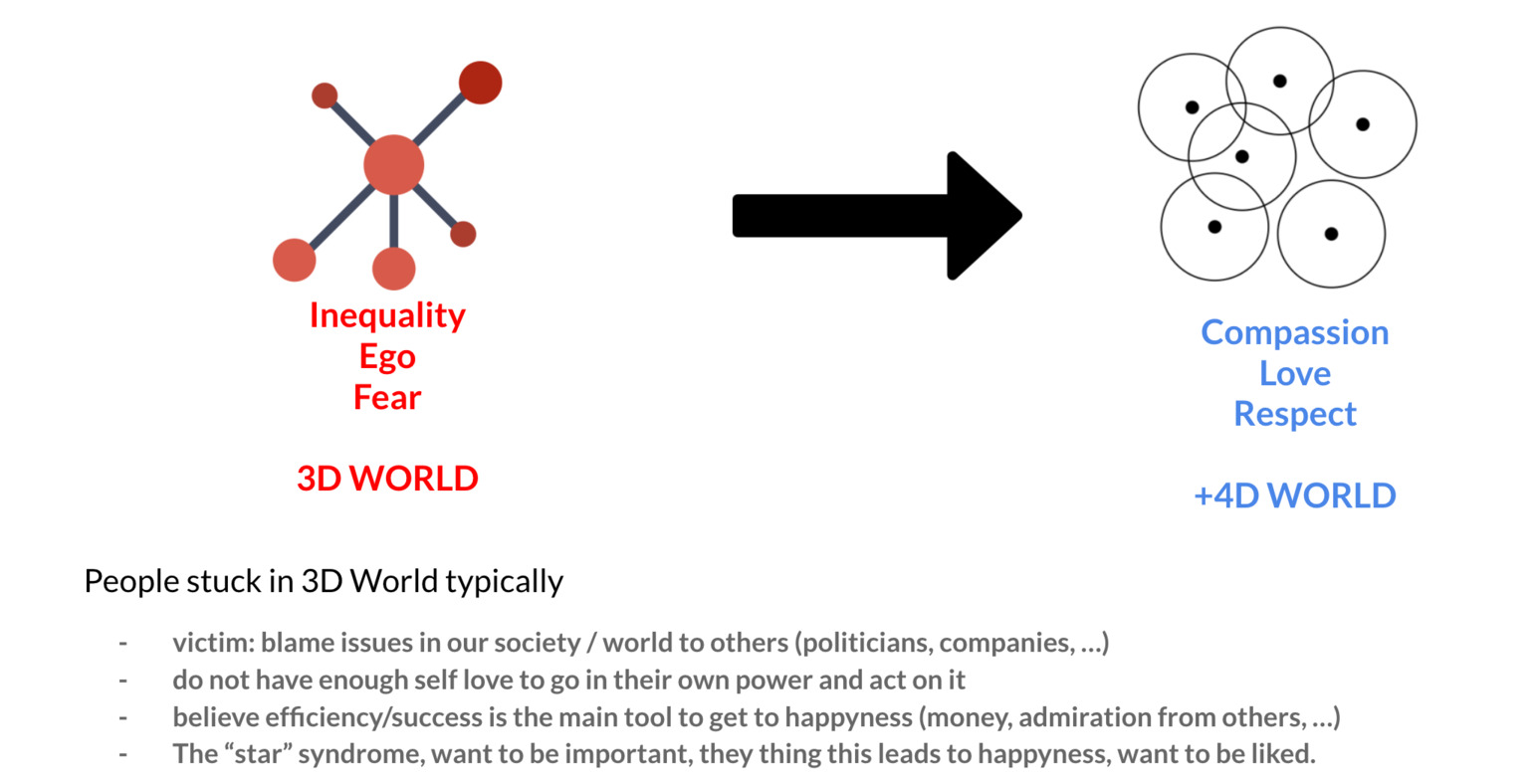From Stars to Spheres

In a pyramid, you report to a boss who will do their weekly reviews to see how you're doing. You will probably create documents together to agree on what needs to be achieved; this typically happens with your boss.
The current paradigm: The boss trusts you to do your job, you trust your boss to protect you and be fair to you.
This trust-based mechanism, at first sight, feels very nice but has many side effects. Read notes on reinventing organizations; this shows you issues with organization styles.
Above is typically known as 'red' or 'orange' organization style. Orange is the modern management style used in most large US or Europe-based companies.
In such an organization, there seems to be a lot of freedom on each level. For example, if a manager of a team wants to change the tools they use, it will still work because it's a pyramid. It goes top-down and back up.
Main issues:
- Limited consensus on priorities
- Very quickly becomes political (especially in orange organizations, too easy for people to abuse the system of feedback loops, ...)
- Quickly leads to inefficiencies, with huge amounts of time lost because of admin/politics overhead
- The people moving to the top are typically not the ones with the biggest added value
- It's a survival of the fittest model
- Values are very quickly forgotten
A pyramid-like system is a system that fits in the current 3D = fear based world.
The new paradigm: Circles group people & projects, and we work as a participatory organization to realize our joint goals.
More Info
- Notes on reinventing organizations
- The five Ds: how to introduce change